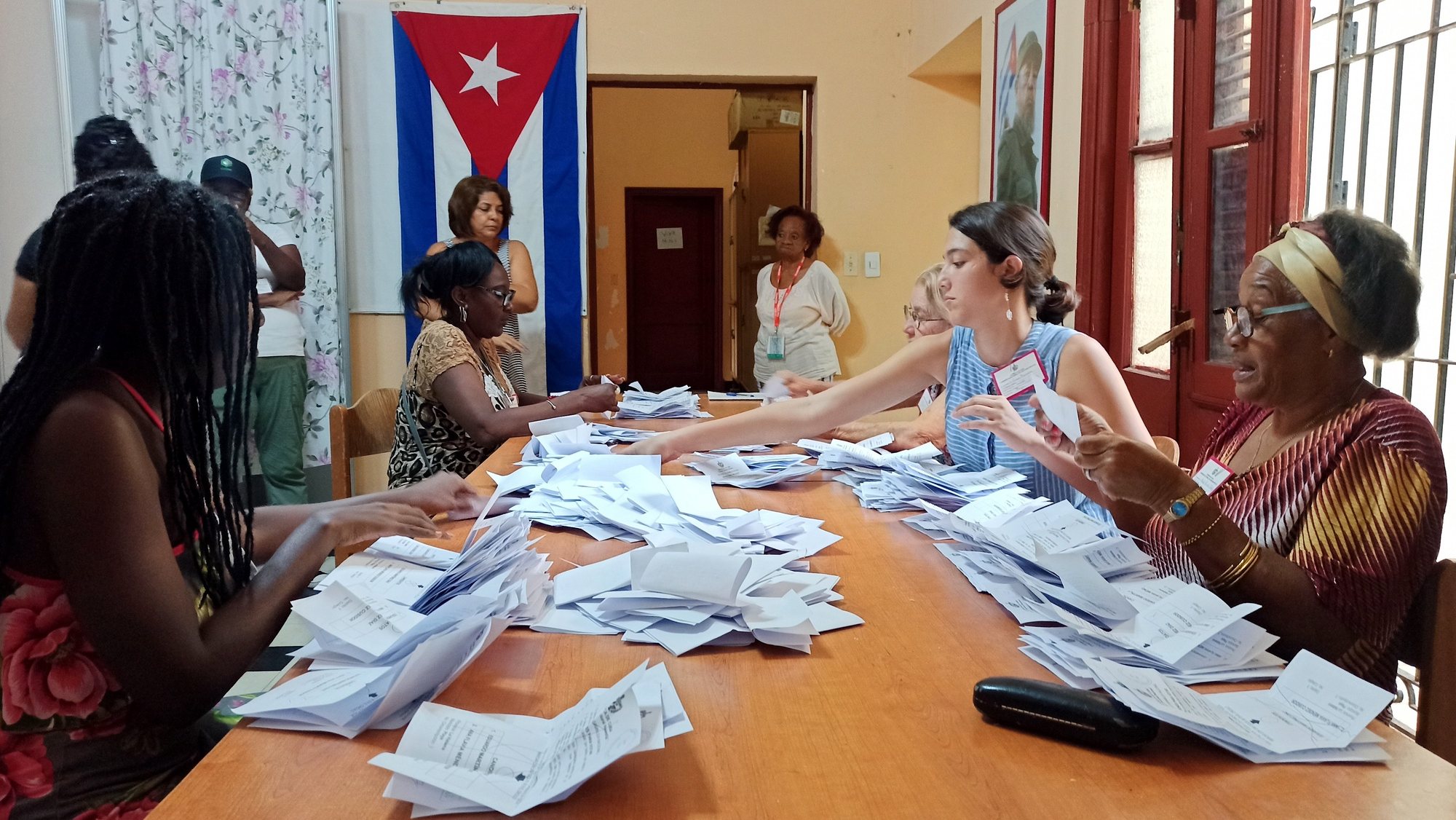
Between 1976 and 2013 abstention was above 90% and in 2018 it dropped for the first time to 85.65%. Until 5:00 p.m. this Sunday, only 70.34% of the voters had voted, a drop of 8.23 percentage points.
The elections for the National Assembly of the Popular Power of Cuba on Sunday are expected to reach the highest abstentionism since the 1959 revolution, according to provisional data released by the National Electoral Council (CEN).
At 5:00 p.m. on Sunday (10:00 p.m. in Lisbon), 70.34% of the voters had voted, that is, minus 8.23 percentage points than at the same time in the 2018 parliamentary elections, indicated the CEN.
The polls remained open for another two hours, but no further data was expected until the end of Sunday, CEN president Alina Balseiro said at a press conference. Preliminary data should be published this Monday.
Electoral participation in the elections to the National Assembly of Popular Power of Cuba is historically high. Between 1976 and 2013 it exceeded 90% and only in 2018 did it fall below that barrier for the first time to 85.65%.
By comparison, abstention in last year’s elections in Cuba was high. In municipalities, in November, it reached 31% and in the referendum on the Family Code, held in September, it remained at 26%.
These participation rates are high relative to any Western country and many liberal democracies. However, the situation in Cuba is different, because it is a limited exercise in which the political system is somehow subjected to a plebiscitethe experts pointed out.
Cuban voters were asked to elect the 470 deputies to the Cuban parliament, Cuba’s highest political body, for a five-year term. The National Assembly has the power to appoint the President and Vice President of the country.
Of the candidates, none is from the opposition and practically all are members of the Communist Party of Cuba (PCC, the only legal party), the PCC youth or similar organizations. There were also no international observers.
Cuban activists and opponents denounced acts of repression against “non-governmental” journalists and dissidentswho were trying to observe the elections.
The non-governmental organization (NGO) Cubalex recorded the events in a public file shared on the internet, according to the EFE news agency. Until 4:00 p.m. (9:00 p.m. in Lisbon) it identified 19 cases of repression, which affected more than 20 people.
The most common complaints were police surveillance and monitoring operations, selective internet outages, arbitrary arrests, and home confinement.
Cubalex indicated that the acts of repression occurred throughout the country, with special incidence in Havana and Camagüey, but also in Holguín, Guantánamo, Matanzas, Santiago and Cuba and Vila Clara.
Three opposition organizations announced, before the elections, that they intended to act as election observers in the absence of independent international staff. On Sunday they announced that they had 75 volunteers covering 14 of the country’s 15 provinces.
Some “non-governmental” dissidents and journalists denounced, before the elections, having received pressure and threats for promoting abstention or preparing to carry out electoral observation tasks.
Source: Observadora